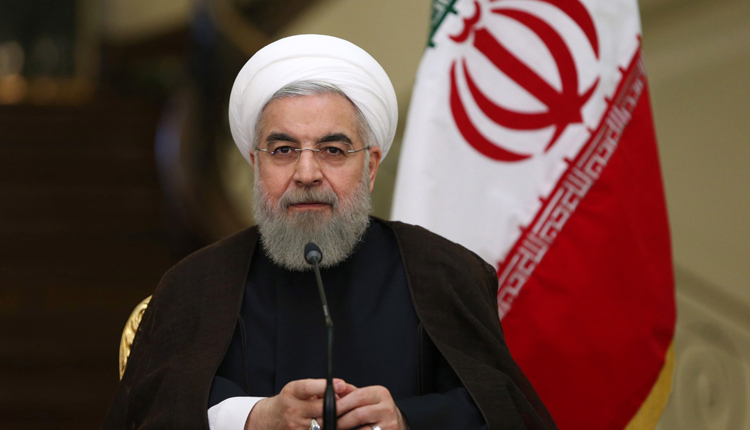Iran’s President Hassan Rouhani is in Europe to meet the leaders of Austria and Switzerland in a bid to save the international nuclear deal that has been abandoned by the U.S.
However, trying to do so could cause a “very messy dispute” between the U.S. and Europe, according to one expert.
“The U.S. will increase non-nuclear pressure on Iran, the European banks and businesses will side with Washington while European politicians will try to create or carve cutouts to the international sanctions architecture, and all this makes for a very messy dispute for the U.S. and its allies,” Behnam Ben Taleblu, a research fellow at Washington-based think tank, the Foundation for Defense of Democracies, told CNBC’s “Squawk Box Asia” Tuesday.
U.S. President Donald Trump pulled the U.S. out of the deal in May and is reinstating sanctions on Iran after he had criticized the accord and said the country did not abide by its conditions. European nations Germany, the U.K. and France, who brokered the Iranian nuclear deal with China and Russia in 2015, have said they are committed to the deal. However, European businesses and financial institutions could be punished via so-called secondary sanctions if they do business with Iranian individuals or entities once U.S. restrictions snap back in August and then in November.
Rouhani said he hopes European nations will come up with a package to save the nuclear deal soon. He met his Swiss counterpart, Alain Berset, on Monday with the Swiss president affirming his support for the agreement, known officially as the Joint Comprehensive Plan of Action (JCPOA).
The Iranian leader will be speaking at an industry event in Bern on Tuesday and there are reports some Swiss-Iranian commercial deals could be announced. Rouhani will then travel to Austria to meet Austrian President Alexander Van der Bellen and his chancellor on Wednesday.
Iran’s state news agency reported Tuesday the foreign ministers of Iran and the countries remaining in the nuclear accord are to meet in Vienna on Friday.
‘A very messy dispute’
Nonetheless, Ben Taleblu told CNBC that the likelihood of the nuclear deal being salvaged (at least in its current form) was small.
“The JCPOA was never designed to exist without any of its major partners. Therefore the U.S. did not envisage a world where it would be out of the deal and the deal would continue,” he said. “Over time, I think it might not be ‘death by a thousand cuts’ to the JCPOA, but the JCPOA will collapse.”
He said Rouhani’s visit to Europe was simply designed to step up pressure on the region for it to save the deal.
“He knows Europe will respond to fears over what Iran’s nuclear program might look like if the JCPOA deal collapses … But he’s also looking for more concrete guarantees about creating a sanctions-proof channel, perhaps something around non-dollar denominated transactions for European banks to be able to wire transactions to Iran as U.S. sanctions are slated to be phased in,” he said.
Among Rouhani’s delegation are private sector representatives and Tehran and both Bern and Vienna are expected to announce trade agreements. Ben Taleblu said the appetite among European firms to do business with Iran, and risk U.S. sanctions, was slight.
“European banks and businesses, and select Asian banks and businesses are publicly siding more with Washington than Tehran because they don’t want to face U.S. secondary sanctions which would be in effect starting this summer and increased in the winter.”
Against a backdrop of the JCPOA possibly collapsing, Tehran announced earlier this month that it was increasing its capacity to enrich uranium in case the deal collapsed. U.S. sanctions on Iran will sorely hurt its oil sector and financial institutions. The U.S. has said it will seek to isolate Iran as much as possible.
On Monday, State Department official Brian Hook made no bones about the U.S.’ aims: “Our focus is on getting as many countries importing Iranian crude down to zero, as soon as possible,” he told reporters.
“We are also working with oil market participants, including producers and consumers to ensure market stability. Banking sanctions will also snap back on November 4, and we will be aggressively enforcing these provisions to lock-up Iran’s assets overseas, and deny the Iranian regime access to its hard currency.”
Source: CNBC
